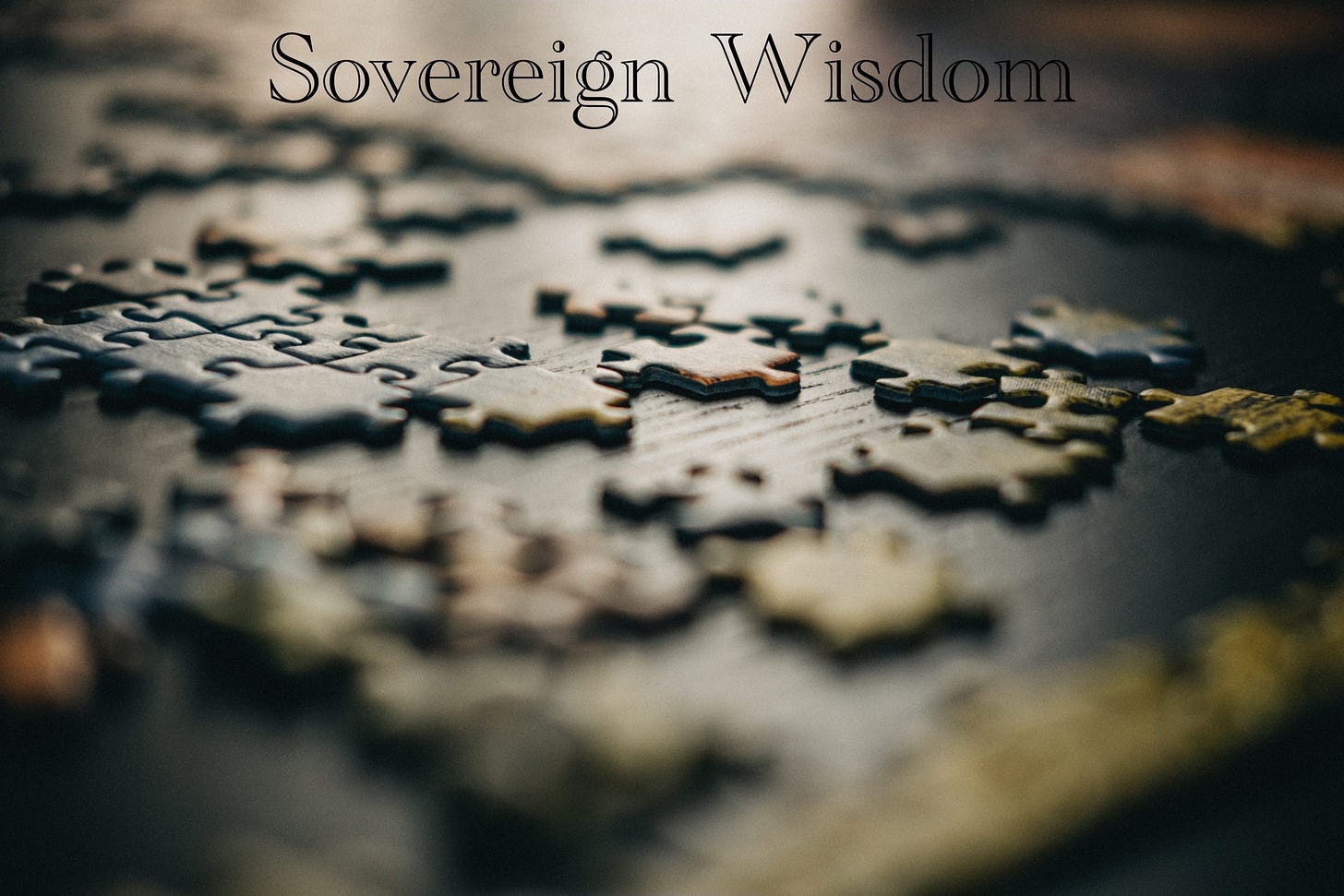Sovereign Wisdom

All of us, to one degree or another, fear the loss of control. We want things to go the way we want them to go. We want to control what is around us so that we can be free from anxiety, and the only way we can be free from anxiety is if everything around us is operating as we think it ought to work.
One temptation that we face when studying Proverbs is thinking that if we master its principles, precepts, and commands, achieving wisdom, we will have the control that we crave. Our wisdom can be used as a lever to get every desired result. If we rightly order our speech, we will persuade others irresistibly to conform to our way of seeing things. If we do what is right, work hard, and work honestly, everything will fall into place. If we are wise husbands and wives, our marriages will be trouble-free. If we parent wisely, our children will move uninterruptedly to perfect maturity. Wisdom is the key to absolute control over everything in my life. If I don’t have absolute control, then I must strive for more wisdom so that I may have absolute control.
If we read Proverbs that way, we have not only read the whole book wrong but also left out some glaringly obvious statements about who is the only one in absolute control. Also, if you don’t get this in Proverbs, you will get it if you read Solomon’s follow-up, Ecclesiastes. There he reminds his listeners that human wisdom cannot shape the mist/vapor and/or shepherd the wind, and all of life is vapor and wind. True human wisdom is only achieved when we understand and submit to the fact that there is only one Sovereign Wisdom who can shape the mist and shepherd the wind. This truth is explained in great detail in Ecclesiastes, but it is also present in Proverbs.
We know God wants us to get wisdom because he says, “Get wisdom” (Pr. 4.5, 7). As God’s viceregent, we need wisdom to complete the mission for which he commissioned us. We need to know how the world is to be arranged in proper relationships and develop the skills to see that it happens with as much as lies within us. But therein lies the limitation: as much as lies within us. We are not all-wise. We don’t and will never have complete knowledge of all things, nor will we have the skillful power to make everything right. Genuine wisdom recognizes our limitations and submits to the all-wise, sovereign God.
God knows how everything fits together to bring about the best end, and he has the power to make it happen. For the skilled Master Craftsman, even evil fits within his purpose (Pr. 16.4). Whether he is using the wicked Assyrians as his rod to correct Israel (Isa. 10.5ff.), the wicked Babylonians to chastise Judah (Hab. 1—2), or the wicked Jews to crucify Jesus (Ac 2.22-23), evil is subject to his authority and is used for his purpose. No man will ever be wise enough to manipulate evil toward good purposes, and the wise man knows that he should never try.
As wise as our hearts might become, God still rules over the plans of our hearts (Pr. 19.21). We plan, whether in wisdom or foolishness, but God’s sovereign counsel is what will win the day. When he frustrates our plans, it is because his wisdom understands things that we don’t. He knows what is best for us, even if we must be frustrated for a while.
God also controls the decisions made by authorities that affect our lives. “The lot is cast into the lap, but every judgment is from Yahweh” (Pr. 16.33; see also 21.1). God’s people once used lots for answers to specific questions where there wasn’t direct revelation. When the lot was cast, and the answer was given, that was taken as God’s answer and was to be submitted to by all the parties involved. God exercises his authority through earthly authorities in the home, church, and civil government. When decisions are made, they are directed by God’s sovereign wisdom. Trusting God’s sovereignty means that you can accept his decisions in the present, as uncomfortable as they might be, knowing that he is working them for your good.
God determines who wins and loses in battle. “The horse is made ready for the day of war, but from Yahweh is salvation” (Pr. 21.31). While we should prepare ourselves for our battles, the outcome is determined by God’s wisdom. His ways are, many times, incomprehensible to us. How can a young man with a sling and a stone defeat a giant Philistine warrior (1Sm. 17)? How is it that three united armies marching to defeat one nation suddenly turn on one another so that not one warrior is left standing (2Chr. 20)?
Wisdom is not a lever that gives us absolute control over our lives or the world around us. We will never have enough wisdom to understand how all the pieces of the world fit together or even how all that happens in our lives fits with the grand plan. Genuine wisdom humbly accepts these limitations, works diligently within these limitations, and trusts the all-wise, sovereign God to make all things right in his time.
Photo by Gabriel Crismariu on Unsplash
The post Sovereign Wisdom appeared first on Kuyperian Commentary.

